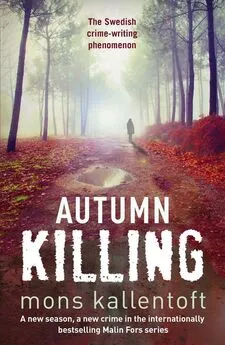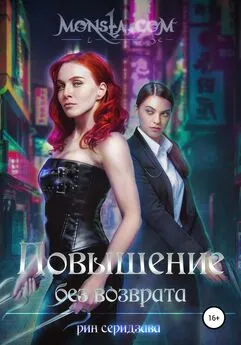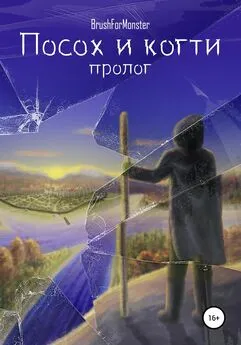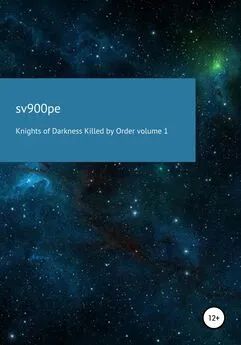Mons Kallentoft - Autumn Killing
- Название:Autumn Killing
- Автор:
- Жанр:
- Издательство:неизвестно
- Год:неизвестен
- ISBN:нет данных
- Рейтинг:
- Избранное:Добавить в избранное
-
Отзывы:
-
Ваша оценка:
Mons Kallentoft - Autumn Killing краткое содержание
Autumn Killing - читать онлайн бесплатно полную версию (весь текст целиком)
Интервал:
Закладка:
Axel Fagelsjo.
Father.
I can see both you and him clearly, you’re lying in your bed, and you’ve fallen asleep and are sleeping a dreamless sleep, a well-deserved rest after all that work trying to keep your impulses under control.
Axel is sitting at his kitchen table on Drottninggatan. He’s taken his beloved shotgun out of the gun cabinet in the bedroom.
He smells the gun, I’ve seen him do that before, and I don’t know why he does it. Now he’s locking the gun away in the cabinet again.
I don’t actually know what happened to me, Malin. I don’t remember anything. That seems to be unusual, from what I’ve been able to gather from talking to other people up here where I am.
But that doesn’t matter.
Because I’ve got you.
You’ll be able to tell me what my fate was.
You talk of your fate, Fredrik, but what do you know, my silver-spoon boy, about fate?
There’s no such thing as fate, just events that are the result of conscious actions.
When I ended up in the moat it was my own fault, no one else’s.
In the most fundamental sense, I caused that event myself.
You imagine, Malin, that you’re going to give me some sort of justice, reparation after death. As if I could have any use for that?
I don’t need anything from any of you.
I am already everything.
On Sunday a hard rain is lashing the ground, the people.
Malin stands in the window of her flat looking at the church tower, the way even the crows seem to be suffering in this wind.
She wants to hear Tove’s voice, meet her, they could have spent the whole day together now that Sven has forced her to take the day off.
But she doesn’t call her daughter, she does what Janne said, or at least what she thought he meant. She keeps her distance. Avoids her own reflection. If she were fourteen years old, she’d be slashing her wrists.
Instead she puts on her jogging clothes and runs twenty kilometres on various routes through Linkoping. She sweats under the tight fabric, the city disappears before her eyes and she feels her heart, feels that she can still trust its power.
Back home again, she calls the station. Waldemar Ekenberg tells her that nothing new has happened in the case.
She leafs through her papers about Maria Murvall. She prepares her talk at the kitchen table. The evening darkness settles outside the window.
Malin looks around the kitchen, thinking: I have nothing, I can’t even handle Tove. And will I ever get the chance again?
61
Monday, 3 November
There must be four hundred eyes, Malin thinks. And they’re all staring at me. I hope the collar of my beige blouse is sitting as it should under this pale blue lambswool sweater, and why the hell am I bothered what this lot think of the way I look?
The hall of Sturefors School is full, pupils tapping at their mobile phones. Malin is standing behind a lectern looking out over them, out at the hall she once sat in.
The headteacher, Birgitta Svensson, a woman in her fifties, wrinkled by smoking, and dressed in grey, is standing beside Malin, takes a deep breath and taps gently on a little black microphone with the fingers of one hand.
‘OK, let’s turn off our mobiles now.’
And to Malin’s surprise they listen to her.
With a chorus of bleeps the phones are switched off, and the voices fall to a murmur until there is silence in the hall.
The smell of damp cloth. Of teenagers’ sweet breath, of flaking plaster.
‘Standing beside me up here is Malin Fors, a detective inspector with the police. She’s going to talk to us about what the police do. Let’s make her very welcome.’
Wolf whistles. They all applaud and when silence settles once more Malin loses her train of thought and isn’t sure where to start, feeling a wave of withdrawal sickness course through her body, and she tries to focus on the clock on the wall.
09.09.
She’s supposed to talk for an hour, but about what?
The adolescents in front of her seem to know everything about the world, yet nothing at the same time. Calling them innocent would be a serious exaggeration, yet what do they know of violence? About human excess? Though a fair number must have seen more adult frustrations than they should have in their own homes.
Like Tove. My hand hitting Janne’s mouth. How could I?
Silence.
No words seem willing to cross Malin’s lips. A minute passes, then two.
The students are starting to squirm on their chairs.
‘Violence,’ Malin says. ‘I work with what we usually call violent crimes. Rapes, and abuse.’
She pauses again.
Sits it out.
‘And murder. And as I’m sure you’re aware, things like that do still happen in a peaceful city like Linkoping.’
Then the words flow by themselves, and she explains how a typical abuse case might be dealt with, about a few real cases, but none of the worst ones.
‘We do our best,’ Malin says. ‘Let’s just hope it’s enough.’
Her nausea remains subdued while she is talking, the adrenalin and concentration making her feel OK, but once the students start asking about the murders they are currently investigating, all the air goes out of her.
‘Well, I think that’s enough from me. Thank you,’ she says, stepping down from the stage before anyone has a chance to ask another question.
The whistling and applause start up again.
There’s something ritualistic about the whole situation.
They would have applauded and whistled even if I’d been talking about the Holocaust, Malin thinks.
Outside the hall the headteacher comes up to Malin.
‘That went well,’ she says. ‘You even got a few questions. That never usually happens. But I suppose they’re excited about what’s going on at the moment.’
‘It felt like they were listening,’ Malin says. ‘But as to whether they learned anything, what do I know?’
The headteacher takes Malin’s arm.
‘You shouldn’t be so hard on yourself.’
Malin wants to pull away, but the look in the woman’s eyes is strangely intense as she looks into Malin’s eyes and says: ‘I’m sure they learned a good deal, and we’re very grateful to you. Would you like a cup of coffee in the staffroom?’
To her own surprise, Malin hears herself say yes.
Lovisa Segerberg is alone in paperwork Hades.
Waldemar and Johan have gone out for coffee.
She wonders whether to switch on Fredrik Fagelsjo’s computer or look through one of the hundreds of folders they haven’t yet had time to look at.
Instead she finds herself thinking about Malin Fors.
If it’s true what the rumours say: that she was caught drink-driving, but that it’s been hushed up. That she’s going into rehab as soon as the case is solved.
People are only human, and even police officers need a bit of slack sometimes. Otherwise there’d only be single-minded, cocksure officers left in the force, and no one wants police officers like that. Would the team cope without Malin Fors?
It would turn into something different, because Malin is the one who sets the tone. The person the others unconsciously lean on.
Maybe I should have coffee with her? Just us women. See how she feels?
Lovisa bats the thought aside and stands up.
Over on a shelf by the door sits a single black folder, apart from the others. God knows how it got there.
She pulls it down, then goes back to her chair.
Inside, three blank sheets of paper.
Beneath them an unfranked envelope, then some handwritten words on even whiter paper.
Lovisa feels time stand still as a warm sensation spreads through her body.
Could this letter be the thing they didn’t know they were looking for?
Birgitta Svensson leans back on a green sofa and takes a bite of a dry, mass-produced almond cake.
Malin is holding her cup of coffee in both hands, the heat of the drink feels good against her palms.
They’re alone in the staffroom, and Malin thinks that it has a peaceful calm, a calm that smells of tea and coffee and books and paper.
‘We only have one real problem at this school,’ Birgitta Svensson says, ‘and that’s bullying. It’s not a small problem either, but no matter what we do we can’t seem to get to grips with it.’
‘Are there particular pupils responsible for it?’
Malin remembers the boys she encountered in connection with a murder a few years ago, and the way they terrified the whole of Ljungsbro School.
‘If only it were that simple,’ Birgitta Svensson says. ‘No, it isn’t just a few individual bullies here, it seems to shift the whole time. Someone who was the victim yesterday can end up as the bully today.’
‘What have you done to try to tackle it?’
‘We’ve had speakers here. Group sessions. Individual counselling. But it’s like a plague. Whenever we think we’ve finally solved it, something new happens.’
‘Maybe it will get better once this year leaves. The problem might resolve itself.’
‘But the school needs to function now. For everyone.’
Tove.
You’ve never been bullied, Malin thinks. What would I do to anyone bullying you if you were?
Doesn’t want to know.
‘Last week,’ Birgitta Svensson says, ‘there was a boy in Year 8 who rubbed his cheeks with sandpaper in the woodwork class. It turned out that a big gang of boys in Years 8 and 9 had been tormenting him because his parents only have a rusty old car. Can you imagine? It was like it was OK to have a go at him, just because everyone else was. We couldn’t identify anyone who was worse than the others, and no one felt responsible, they were all just “joining in”.’
Birgitta Svensson makes quotation marks in the air with her fingers.
Then she leans forward, for the last bit of the almond cake.
‘Sandpaper,’ Malin says. ‘He must have been feeling terrible.’
‘To be honest, he looked dreadful. As if he was wearing a mask of wounds.’
Outside the school dining room there are posters from the Friends Foundation.
Encouragement to be friends with everyone, not to exclude anyone, to try always to see a person’s unique qualities and characteristics.
A pipe dream, Malin thinks. Show any weakness and you can be sure that someone will bite.
Did Jerry Petersson show weakness?
Fredrik Fagelsjo?
Were they open and weak, if only for a matter of seconds, and then reality struck, biting them with its greedy jaws?
One of the posters shows a girl standing on her own in a corner. Five metres or so away stands a group of other girls. The text in the top corner of the poster says: ‘Everyone needs a friend. Could that be you?’
Malin heads towards the car, finally a break in the rain.
In her mind she can see Anders Dalstrom, and remembers what Andreas Ekstrom’s mother said about him, that he seemed lonely, that Andreas could have been his only friend, and that Andreas looked out for him.
He visited Jasmin even though he didn’t know her.
A tip-off from a male caller.
Lord of the Flies . Why that, of all films? The bullying film to beat all bullying films, surely?
The key in the car door, and twenty minutes later she’s sitting in paperwork Hades with Zeke, Johan Jakobsson, Lovisa Segerberg, Waldemar Ekenberg, and Sven Sjoman.
In front of them on the table, in a plastic folder, lies a letter. Shaky letters written in black crayon.
The text: ‘I know all about new year’s eve. It’s time to pay. I’ll be in touch soon. Be ready.’
Читать дальшеИнтервал:
Закладка:


![Альфред Ван Вогт - Чудовище / The Monster [= Пятый вид: Загадочное чудовище; Воскресшее чудовище; Возрождение]](/books/155614/alfred-van-vogt-chudoviche-the-monster-pyatyj-v.webp)






